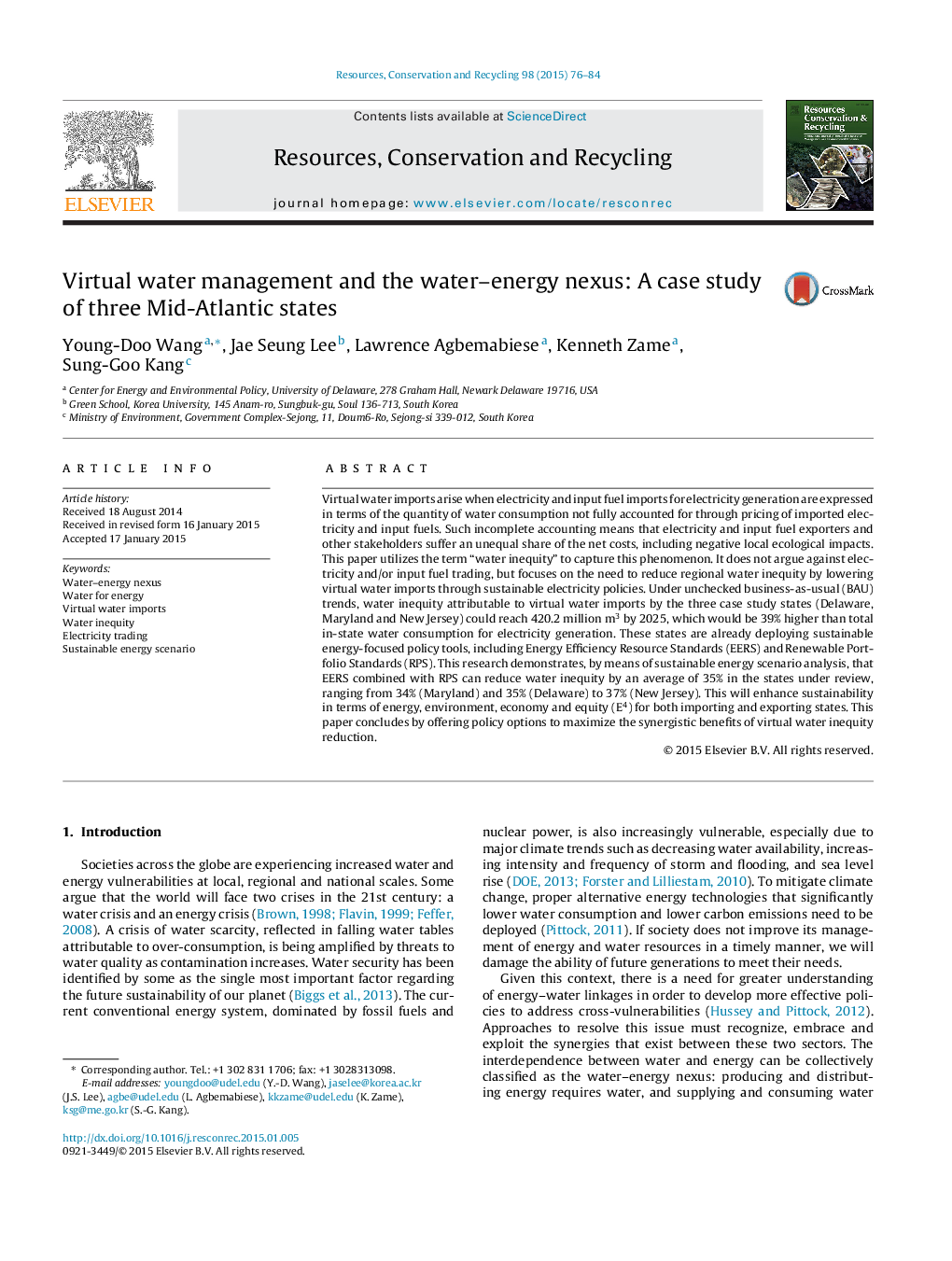| کد مقاله | کد نشریه | سال انتشار | مقاله انگلیسی | نسخه تمام متن |
|---|---|---|---|---|
| 1062931 | 1485691 | 2015 | 9 صفحه PDF | دانلود رایگان |
• Virtual water inequity associated with “water for electricity” is examined.
• A sustainable energy scenario demonstrating pathways to water inequity reduction is developed.
• By 2025, water inequity can be reduced by 35% in all three case states using a combination of EERS and RPS.
• In-state water consumption can be reduced by 34% through water inequity reduction by 2025.
• Water implications of energy need to be considered in energy policy.
Virtual water imports arise when electricity and input fuel imports for electricity generation are expressed in terms of the quantity of water consumption not fully accounted for through pricing of imported electricity and input fuels. Such incomplete accounting means that electricity and input fuel exporters and other stakeholders suffer an unequal share of the net costs, including negative local ecological impacts. This paper utilizes the term “water inequity” to capture this phenomenon. It does not argue against electricity and/or input fuel trading, but focuses on the need to reduce regional water inequity by lowering virtual water imports through sustainable electricity policies. Under unchecked business-as-usual (BAU) trends, water inequity attributable to virtual water imports by the three case study states (Delaware, Maryland and New Jersey) could reach 420.2 million m3 by 2025, which would be 39% higher than total in-state water consumption for electricity generation. These states are already deploying sustainable energy-focused policy tools, including Energy Efficiency Resource Standards (EERS) and Renewable Portfolio Standards (RPS). This research demonstrates, by means of sustainable energy scenario analysis, that EERS combined with RPS can reduce water inequity by an average of 35% in the states under review, ranging from 34% (Maryland) and 35% (Delaware) to 37% (New Jersey). This will enhance sustainability in terms of energy, environment, economy and equity (E4) for both importing and exporting states. This paper concludes by offering policy options to maximize the synergistic benefits of virtual water inequity reduction.
Journal: Resources, Conservation and Recycling - Volume 98, May 2015, Pages 76–84
